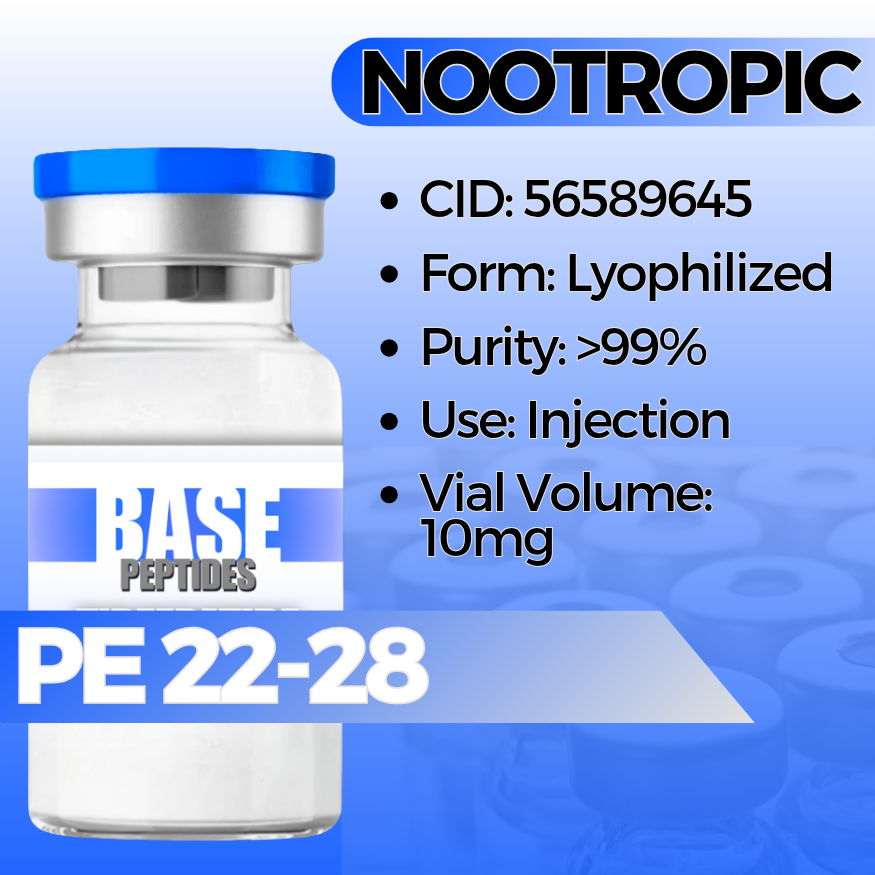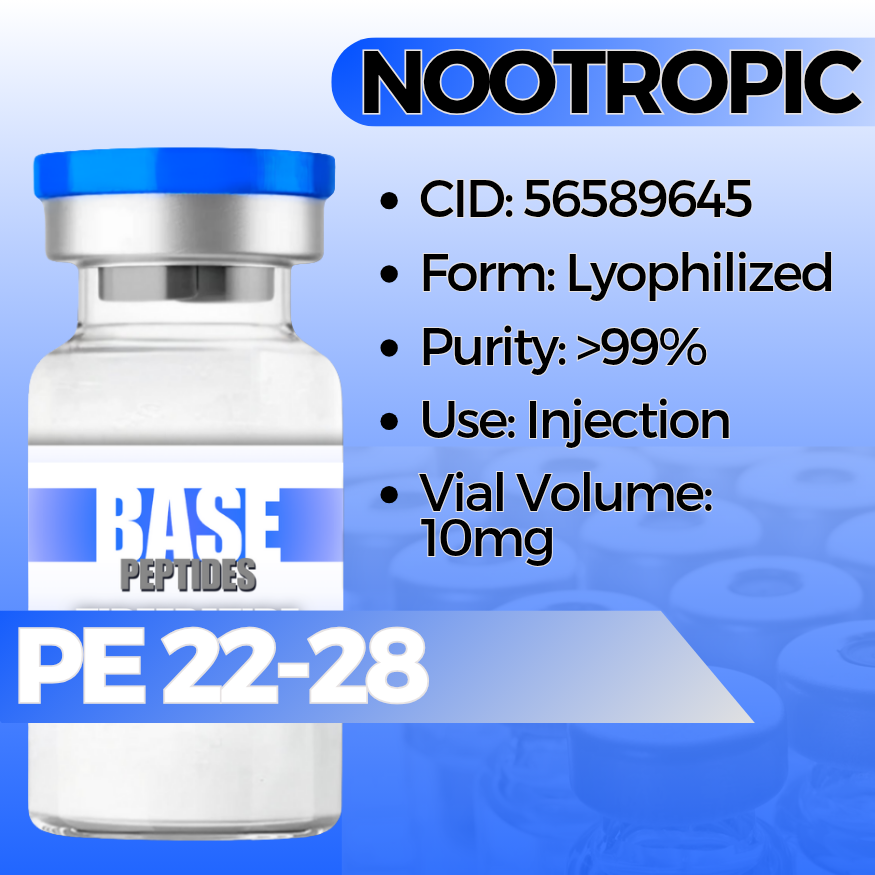PE 22-28
PE 22-28
Base Peptides are intended for licensed medical professionals and experienced researchers. Reconstitution required. Dosing and use instructions are not provided.
Regular price
$55.00
Regular price
Sale price
$55.00
Shipping calculated at checkout.
Quantity
Couldn't load pickup availability
PE-22-28 — Research Peptide
Professional-grade PE-22-28 supplied for qualified research. Structured page includes identifiers, sequence, background, study highlights, potential research applications, synergy, and responsible-use notes.
Identifiers
- Synonyms: PE-22-28
- Form: Lyophilized powder (typical)
Origin & Background
Summarize the origin: discovery context (e.g., fragment/analog of a parent protein), original research aim (receptor targeting, signaling motif, stability), and known areas of preclinical exploration. Keep to neutral, research-oriented language.
- Primary research focus:neuroetrophic signaling / metabolic modulation / anti-inflammatory)
Handling
-
Storage (powder): −20 °C, desiccated, away from light.
-
Stability: Avoid repeated freeze-thaw; aliquot as needed.
- Reconstitution: Provided for qualified research labs; **no usage instructions** are supplied for human/clinical administration.
Key Study Highlights (Plain-English Summaries)
Mechanism / Target Pathways
-
Proposed target(s): Receptor binding, enzyme modulation, peptide–protein interaction).
-
Downstream signals: cAMP/PKA, MAPK/ERK, PI3K/AKT), based on preclinical models.
- Notes: Clarify whether data are in vitro, ex vivo, or in vivo models; avoid clinical claims.
Known Concerns & Responsible Use
- Data stage: Early-stage/preclinical; limited translational evidence.
- Stability/specificity: Validate sequence integrity, purity, and potential off-target binding.
- Compliance: Research-only; no reconstitution/administration instructions provided.
Specifications
| Appearance | White to off-white lyophilized powder |
|---|---|
| Purity (HPLC/MS) | ≥ 99% |
| Storage | −20 °C (powder); aliquot upon receipt; protect from light |
| Shipping | Ambient or cold-chain depending on climate/season |
| Contents | [e.g., 5 mg / 10 mg vial] |
PE-22-28 Research Peptide | Sequence, Origin, Studies, Applications | High-Purity ≥99% | Base Peptides


